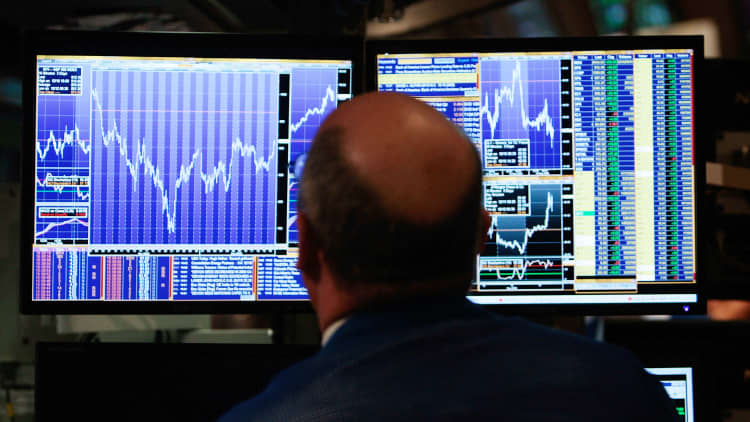Although Federal Reserve Chairman Jerome Powell is optimistic about the future of the U.S. economy, the central bank moved to cut interest rates a quarter of a percentage point on Wednesday amid concerns around global developments.
"I see the U.S. outlook as being a positive one," Powell said Wednesday. "There is nothing really within the U.S. economy that presents a prominent, near-term threat." There's no segment or sector that's "boiling over," he added, saying the risks are really coming from abroad.
But how does Wednesday's rate cut — the first since 2008 — impact the average consumer? While it's hard to say exactly how consumers will see the changes, generally, a rate cut is "good for borrowers, bad for savers, and mixed for investors," Sallie Krawcheck, co-founder and CEO of Ellevest and former Wall Street executive, tells CNBC Make It.
A rate cut could hurt savers with high-yield accounts
The federal funds rate is used as the benchmark for many consumer interest rates. Some banks — including Ally and Marcus by Goldman Sachs — cut yields on some of their retail products, including savings accounts, ahead of the central bank's actions. Experts say savers can also expect CD rates to fall with the news of the Fed's decision.
Expect savings account APYs to take a hit. And while many traditional banks never increased them significantly anyway — the national average rate is still 0.10% — even online banks will likely cut interest rates up to an additional 0.15%, Ken Tumin, founder of DepositAccounts, tells CNBC Make It. Here are three smart financial moves for savers to consider in light of the cut.
A rate cut helps borrowers with credit card debt
An interest rate cut is bad news for savers, "but it is something of an unexpected gift for borrowers and investors," says Mark Hamrick, Bankrate.com senior economic analyst.
Variable credit card interest rates are tied to the prime rate, for example, which is closely related to the federal funds rate, Hamrick says. So, with the federal funds rate dropping, a card holder could see a drop in their APR within a billing cycle or two, which means smaller monthly payments.
Credit card interest rates are currently at a record high, so any breathing room would be a boon to those carrying credit card debt. Still, a slight cut won't save borrowers much when they are facing double-digit interest rates; it's important to make a plan to pay off any balance as soon as possible.

Mortgages are more complicated
Mortgage rates are a bit trickier, says Hamrick. The Fed does not directly set mortgage rates, but cutting the benchmark rate could still impact your mortgage.
Investors typically rush to the relative safety of bonds when the economy falters. As a result, recent lower bond yields have led to substantially lower mortgage rates since the end of 2018. Cutting rates could potentially reverse that, Hamrick says, as it signals an improving economy.
On another front, Skylar Olsen, Zillow's director of economic research, tells CNBC Make It that other economic factors have more influence on mortgage rates.
"The typical 30-year mortgage rate is responding more to uncertainties on a global stage due to trade war concerns and early stage softening in the economy in general than in the fed funds rate," says Olsen. "But a drop in the fed funds rate will contribute to mortgage rates remaining low into the future."
Some other loans might be impacted
Consumers with home equity lines of credit also typically benefit from lower interest rates. And WalletHub CEO Odysseas Papadimitriou expects auto loan rates to drop about 0.15%.
Federal student loan rates are set by the Department of Education each year, based on the 10-year Treasury note, and are expected to fall next year. Private loan rates might be variable, and therefore could be indirectly influenced by the Fed's decision. If you hold private loans, it could be worth exploring refinancing options.
Overall the effects are mixed
A rate cut is typically a "mixed bag" for investors, says Krawcheck. The U.S. is currently in the longest economic expansion on record, and historically the stock market has always rallied after the first rate cut when the economy isn't in a recession, data shows.
Following Powell's remarks on Wednesday, in which he said the Fed was not entering a long cycle of rate cutting, the markets closed slightly down. The Dow Jones Industrial Average closed 333.75 points lower, or 1.2% down, while the S&P 500 fell 1.1%.
This is an updated version of a previously published story.
Don't miss: 55% of Americans with credit cards have debt—here's how much it could cost you
Like this story? Subscribe to CNBC Make It on YouTube!




